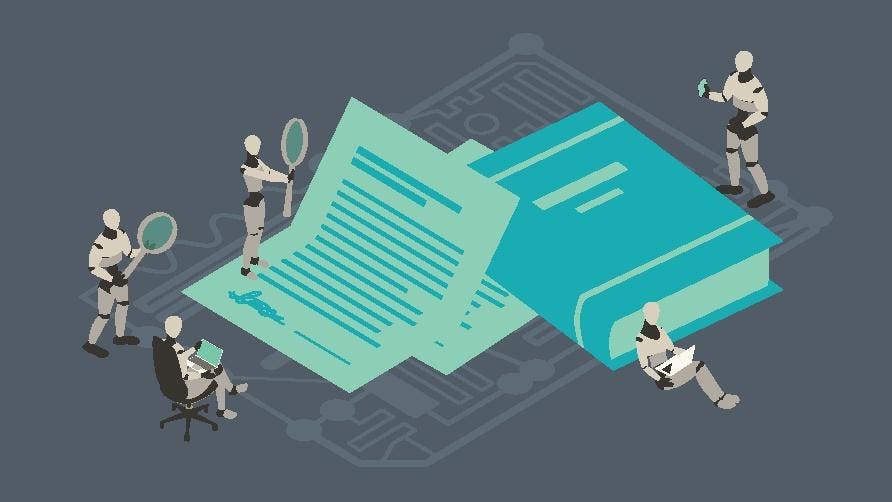Threat or Transformation: Will AI Take Over the Legal Profession?

The Rise of AI in the Legal Field
As artificial intelligence (AI) continues to transform various sectors, the legal industry is undergoing significant changes. Many legal professionals are increasingly adopting AI technology to enhance productivity and reduce expenses. Recent statistics reveal that about 73% of legal experts intend to start using AI tools in their daily practices, with 65% of law firms believing that successful integration of generative AI will set apart thriving firms from struggling ones over the next five years.
Investment Trends in AI-Driven Legal Startups
Investor enthusiasm for AI-powered legal startups is soaring, as evidenced by funding reaching an all-time high of $477 million in 2024. Investors are particularly attracted to the potential automation of approximately 44% of legal tasks by advanced AI technologies. Notable startups, such as Harvey, have achieved remarkable valuations, raising $100 million in Series C funding with a valuation of $1.5 billion.
Insights from Legal Professionals
The conversation on the evolving landscape of legal automation features insights from Ben Su, Co-founder of Capita—the first AI lawyer, Carey Lening, a legal-tech consultant, and Jide Afolabi, an experienced probate lawyer. They shed light on the implications of AI in legal service delivery, including the challenges and criticisms of this shift, the effects on legal education, and what the future of work in the legal sector might look like.
Current Landscape of Legal Automation
AI’s entry into the legal sector has been remarkable. The emergence of billion-dollar companies like Harvey fostered a flurry of investments, with 58 funding deals recorded in 2024. AI tools designed for contract analysis, case research, and document summarization can replace traditional slow processes, potentially saving lawyers four hours a week and boosting annual billable time by up to $100,000.
The Evolution of Automation Tools
Lening, drawing from her 20 years in technology and data protection, argues that legal automation has actually existed for years. She notes that tools like WordPerfect were already in use for standardizing documents 20 years ago. The key difference today is the advanced capabilities of modern automation technologies. With tools evolving beyond basic spreadsheets, there’s now a plethora of new options to automate various legal tasks.
Afolabi explains that while the initial interaction with clients is still vital, the methods for gathering and analyzing information have undergone a sea change. Where notes were once taken on paper, automation now allows for more efficient data gathering and risk assessment. He emphasizes that while AI does enhance the legal process, human lawyers remain critical for client interaction and strategic decisions.
Su from Capita argues that the focus solely on improving lawyers’ profitability can hinder genuine innovation. He believes the industry must address systemic inefficiencies rather than simply optimizing them. Many established systems in the legal field are outdated and need a rethink to foster real progress.
Innovations in AI Applications
Legal professionals are already exploring the implications of AI in various capacities. Lening mentions the use of large language models (LLMs) for more efficient contract analysis, alongside her own project using Python to summarize legal cases. However, she warns that AI tools require precise prompting and context to yield useful results, stressing that they are not infallible.
The Role of AI in Shaping Legal Services
AI’s integration into legal services promises a shift towards more accessible and transparent pricing models for clients. Su envisions a future where AI serves as a constant companion for clients, providing guidance and insights before issues escalate. This approach questions the traditional hourly billing model, which can often leave clients feeling overcharged.
Both Su and Afolabi recognize the flaws in the current billing methods. If automation can significantly cut down on the hours needed for certain tasks, Afolabi notes that some firms might adjust their rates rather than reducing their overall billing. However, he maintains that market competition will ultimately drive prices down, especially if some firms start to offer lower rates.
Assessing AI Efficacy and Concerns
Despite its promise, many traditional legal practitioners view AI with skepticism, arguing that the nuances of legal work are often too intricate for machines to manage effectively. Some lawyers express concerns about AI’s limitations in delivering comprehensive legal evaluations.
Lening raises concerns about consumer-facing legal AI, pointing to previous cases where overly optimistic applications fell short of delivering accurate services. Su concurs, highlighting cases where reliance on generic AI templates led to significant errors in legal work.
Reimagining Legal Education
As AI continues to redefine the legal landscape, its impact extends to legal education as well. Su critiques the traditional model, suggesting AI’s role could alleviate the burdens placed on young lawyers, allowing them more meaningful opportunities in their early careers.
Lening supports updates to legal education by emphasizing the importance of not only analytical thinking but also technical skills to audit AI outputs and collaborate effectively with engineers. She encourages prospective law students to carefully consider their motivations for pursuing legal studies, recognizing that the career paths of the past may no longer be guaranteed.
Navigating the Future of Work in Law
The push toward legal automation reflects broader changes across industries, where emerging technologies can provoke fears of job loss but also create new roles. Lening likens this shift to historical technology transitions and emphasizes that AI is here to enhance efficiency rather than replace human talent.
As the conversation evolves, many legal experts agree that while challenges remain, utilizing AI tools can improve the affordability and accessibility of legal services. The goal is not to replace human judgment but rather to enable lawyers to focus more on complex, creative, and strategic aspects of their work.






